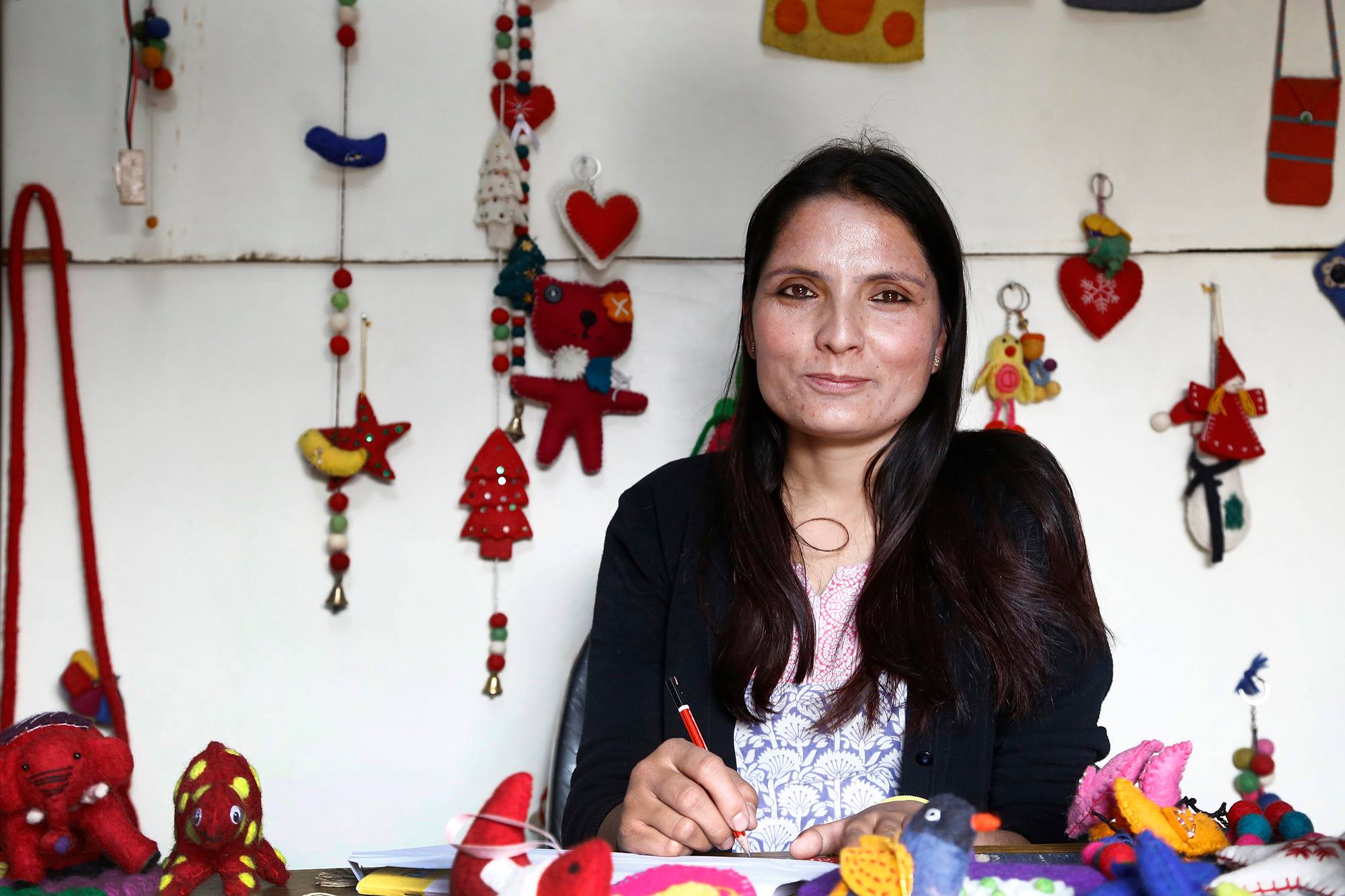Sangita Pant

Sangita is from Palungtar 6 in Gorkha district, NW of Kathmandu, the only daughter in a family of four boys. An ordinary young girl she attended the local village primary school with her brothers. One day when she was 7 years old tripped on one of the ploughed ridges in the field, landing awkwardly on her left shoulder. She was in a lot of pain so the next they her parents paid a neighbor to carry her to the nearest health post which was one day walk away. There they put her elbow in a cast, which turned out to be the wrong treatment. When Sangita returned after 3 month to remove the cast she was in a lot of pain and her finger were no longer working. She had dislocated her shoulder and the weight of the cast on her arm had only made it worse. Now also the nerves were damaged and could no longer be repaired. Her father took her to a hospital in Kathmandu but also there, they couldn’t help her anymore. Her left arm remained paralyzed.
Back in her village the people were piting her and telling her she had no future. lot of discrimination always used the word “Poor Girl” it was really depressing and discouraging for Sangita. To face all this discouragement was difficult but didn’t stop her, finally she passed her School Leaving Certificate in the first division. She managed to persuade her parents to let her come to Kathmandu to stay with her brother and study for her Intermediate Level of Studies in Management and continued doing a Master in Sociology afterwards. With class in the morning, she looked for a job for the afternoons and soon found one as a teacher in a primary school. She taught for nearly three weeks before they noticed she didn’t have full use of her left arm, and told her that parents would remove their children if they found out they were being taught by a disabled person. Not only did they ask her to leave, they also did not pay her for the work days she had taught! Sangita’s confidence was totally knocked by this sad incident, the discrimination left her depressed and affected her studies. Three year she found a job with a leprosy INGO in Kathmandu and quickly rose to a supervisor and looking after responsibility for many workers. In 2008 she got selected for a three month training related development for PWDs in Japan, through JICA which was really mile stone & boosted her confidence, motivated her. Coming back she decided to start her own organization to be able to help other differently able women. Against the advice off all her friends and family left her safe & good job at the German INGO Kathmandu and founded EPSA (Empowerment Through Social Action) Nepal in 2009 with a very tiny Zinc shed.
Finding a property to rent was very difficult because many people don’t want to rent place to people with disabilities, but finally she got lucky and found an affordable Land/place where she started off with 5 women at beginning work of EPSA . They were making candles, soap and some knitwear, which Sangita most of day sold on the street & different shops of Kathmandu. Back then electricity was still only available for a few hours every day, so candles were in high demand. Later that changed and she had to find other products to sell. When she came across some felted craft & other handicrafts. she bought samples and found a teacher to train her and the women. Slowly the organization was growing, progressing but life remained difficult and often a struggle. They were facing discrimination, violence, a lack of clean water, medical support, floods during the monsoon and a severe earthquake in the year 2015. “Many challenging times I was thinking of stopping, but I never lost hope and patience” Sangita says. Another turning point came with a generous donation that allowed her to purchase her own plot of land and built a disable friendly Shelter home & training center. There she is now able to provide accommodation for 25 girls as residential and production work for about over 100 working members.
Since the start in 2009 she has been able to help more than 5000 women through education support, medical, trained them & job replacement in other places. Despite ongoing experiences of discrimination she is determined to make life better for others through employment. All the discrimination she had to experience never stopped her, they actually encouraged her to keep going and to rise to the challenge. And suffer in Left arm became a turning point in her life, Living myself is not important & value of life but my efforts in showing the ways to others to live with dignity/independent & respectful life is important she says.,Till date i am humbled to have the support, understanding & help from many human beings who made it possible for me to achieve such goals.i hope to receive more differently able women to reduce their poverty in my country. I have much to accomplish. Thank you.
